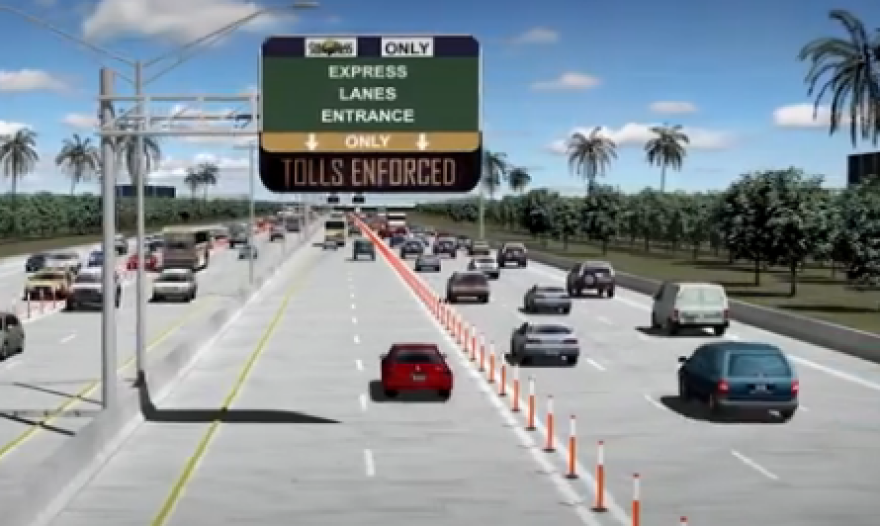The Florida Department of Transportation is hitting the reset button on the controversial plan known as TBX. It would add express toll lanes to nearly 100 miles of interstates in the Bay Area. But critics say it would bulldoze historic neighborhoods in the process.
FDOT is taking two years to research and respond to community feedback, and expects to have a revised plan by the end of 2019.
One of the department’s most recent efforts to re-evaluate TBX involved a trip to St. Louis to learn how Missouri transportation officials worked with the community on a contentious highway project there. FDOT invited some politicians, residents and members of the business community along for the trip, which was paid for by the Federal Highway Administration.
Some people in the group are vocal opponents of TBX, including Chris Vela, President of the Historic Ybor Neighborhood Civic Association and leader of the Stop TBX Coalition.
Some Tampa City Council members questioned whether the paid trip to Missouri was a way to persuade opponents to get onboard with FDOT’s plans. Vela says that’s not the case.
“I was a little concerned because I-64 [in St. Louis] is an entirely different animal from the Tampa Bay Express project…For I-64, [officials in Missouri] actually needed to get something done because the infrastructure was crumbling…At the meeting [in St. Louis] I actually pointed out that from a perspective of archaic infrastructure, we’re not there, at least in the areas we’re talking about with TBX,” Vela said. “One of the great things from going to St. Louis was just seeing how [officials there] handled their situation and how they worked with the community. There were some positive lessons that could be learned from that, but the I-64 project, again, was entirely different from TBX.”
Vela says increased citizen engagement in the planning of TBX is exactly what opponents want. But he says he’s still not confident this “reset period” will truly address their concerns.
Despite putting TBX on hold, FDOT says it will continue to buy land from willing sellers in the Westshore and Downtown interchange areas to reduce right of way costs down the line. Vela says once those purchases are made, even if projects like TBX don’t end up coming together, the state will still own that land.
“So that means people can’t really develop on it anymore, you can’t get any revenue from property taxes…We want FDOT to stop acquiring properties; that is the most important thing at this point,” Vela said. “I think if they can make that promise, maybe, just maybe, they might have a little more reception from the community.”
FDOT says it’s working with the Federal Highway Administration to prepare a “Supplemental Environmental Impact Statement” to reevaluate the social and environmental impacts of the proposed improvements in the Downtown Interchange and the Westshore areas. The department says it will evaluate alternatives in response to community input.
Vela says many critics of TBX feel like up until now, officials have been taking a top-down approach to planning. He hopes that during this reset period the focus will shift toward a citizen-led plan.
“I think what we need to do is actually go from the ground-up and figure out what works for neighborhoods, and then what works for the city and for the county,” Vela said. “It’s all about moving 200,000 people, but really it should be more like, ‘What does transportation mean for your block?’ And then how can we piece that together and form a workable, flexible land use-transit-transportation network that actually works for the whole Bay Area.”
FDOT will fund, lead and manage a series of independently facilitated “Community Working Groups” that consist of residents, business organizations and local agencies throughout the region. The idea is to start a broader conversation about regional transportation and open a two-way dialogue with the community. Meetings will begin next month.




